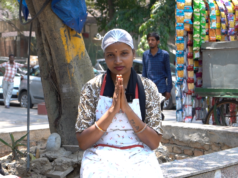Every time I look at my grandmother, a mix of emotions like awe, wonder and, to some extent, jealousy fill my mind. She doesn’t remember her birthday but her looks and culinary zeal belie her age. So, when I came across the conversations around paying women for Unpaid Domestic Work (UDW), I couldn’t help but juxtapose the discourse with my grandmother, wondering what price would befit her contribution to our household!
The proposition of Paying for Unpaid Domestic Work (PUDW) has a long history. Its primary objective is to shock the patriarchal mindset into acknowledging the role of UDW as the vital cog behind the human capital in any economy. For instance, the estimation by various studies, of the contribution of UDW to the Indian economy differs from 40% of its GDP to as much as 19 trillion USD per year!
PUDW certainly presents a strong case. The sheer radicalism, it is hoped, would make it impossible to take the domestic chores that women do for granted. It could enable women to be more financially independent, increase their bargaining power, resist domestic violence and even empower them to exit failed marriages. It could also lead to a more inclusive calculation of national income accounts if and when we manage to put an appropriate monetary value on UDW. In Kriti vs Oriental Insurance, the Supreme Court has supported the idea of assigning a ‘notional’ income for the non-earning victims (including homemakers), although in the context of calculating compensation in motor vehicle accidents.
However, PUDW appears high on intentions but low on outcomes, given the various ideological and operational concerns. The idea conveniently dodges the underlying issue of unequal sharing of domestic responsibilities at the household level. As NSO’s first Time Use Survey shows, in India, women spend ten times more duration in UDW than men. Paying women for UDW only hardens the arbitrary divisions of domestic work that it sought to address in the first place. The proposal appears to have a condescending tone, wherein the need for recognition of the performance of UDW trumps the much greater need for redistributing the disproportionate burden of UDW thrust on women. The unfair burden of domestic struggle leads to a low labour force participation rate in women, which is an issue of concern in India and unlikely to be solved by the proposal. Operationally, devising the right means-test for beneficiary identification, valuation of UDW at household level etc., remain unaddressed. It would also be challenging to decide if the age and marital status of recipients should matter, as the performance of UDW by women is hardly dependent on them.
The idea of PUDW merits a trial. Perhaps a household where no adult is productively employed will benefit more from the proposal than one where the woman, for example, owns a small eatery. To achieve the targeted delivery of this idea, it’s best to involve the local bodies to identify beneficiaries. Nevertheless, it would need far-sighted, innovative policy interventions to address the more fundamental issue of equitable sharing of UDW. One of the low-hanging fruits is to legalise and expand the applicability of paid paternity leave, following other Nordic nations. It would help in changing the perception that childcare is solely the mother’s responsibility.
There is an iconic scene in the much-celebrated movie, ‘The Great Indian Kitchen’, where the lead actress almost cathartically scolds her brother for asking her to fetch water to drink, when he could have easily done the same.
The smallest of measures by the agents of socialisation have the most significant role in the long run. Parents could ensure that children are regularly engaged in UDW, such as cleaning utensils, drying clothes etc., regardless of their gender. Schools could ensure that children are educated about the artificial link between gender and UDW. The media has a crucial role in either propagating or challenging existing gender stereotypes in their content. In sum, paying our way out of the issue is akin to missing the wood for the trees.
After all, like charity, equality begins at home.
Read more: Caste barriers still play a big role in our economic choices
Post Disclaimer
The opinions expressed in this essay are those of the authors. They do not purport to reflect the opinions or views of CCS.






